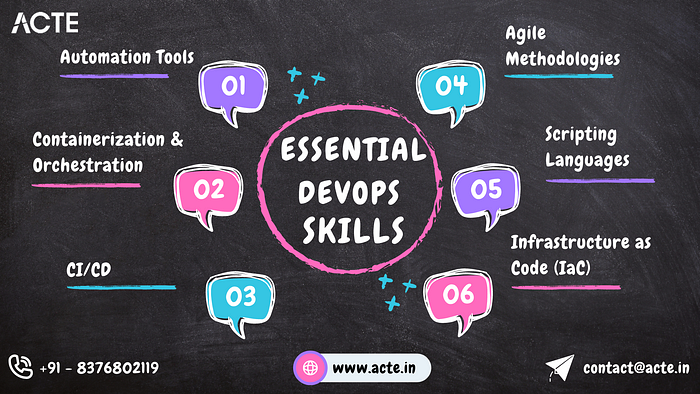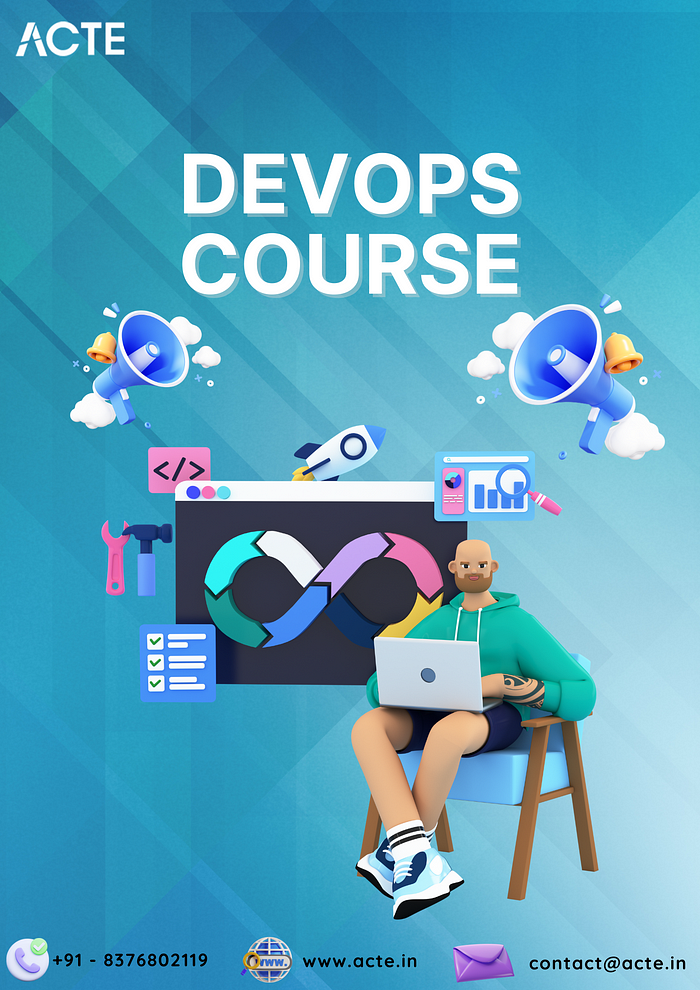The tech industry is an ever-evolving landscape where today's cutting-edge innovation is tomorrow's legacy system. This rapid pace of change is at its most palpable in the realm of DevOps (Development and Operations). It is an approach that brings together the development and operations teams to collaborate throughout the entire service lifecycle. This not only enhances the quality of software but also allows for faster development and deployment. The quest for DevOps skill mastery is indeed an epic one, layered with numerous skills and technologies that one must master. As part of our dedication to aiding those in their journey towards mastering DevOps, I am thrilled to present the DevOps Training in Hyderabad.This blog post is your roadmap for the journey.
Understanding the DevOps Culture
The heart of DevOps is its culture – an ethos that promotes a collaborative working model between development, QA, and IT operations. This synergy is fundamental and precedes any technical skills. Companies that embrace this culture are able to deploy code up to 30 times more frequently than their competitors.
Key Components of the DevOps Culture:
- Collaboration: Communication and integration between developers and IT operation staff.
- Automation: Routine tasks should be automated to reduce the scope for human error and free staff to focus on more value-adding activities.
- Continuous Improvement: The product is never finished but is in a constant state of iteration and refinement.

Learning Path for Technical Skills
Building a career in DevOps requires you to develop an array of technical skills. Let's break down the learning path into core segments.
1. Understanding and Managing Systems
Before you can deploy and manage software, you need a robust understanding of the systems on which it runs.
Key Skills:
- Linux Fundamentals: Most DevOps systems run on Linux.
- Operating System Concepts: Understand process management, I/O management, virtualization, memory storage, and file systems.
2. Coding and Scripting
A solid grasp of coding and scripting languages can go a long way in automating tasks and setting up efficient systems.
Key Skills:
- Python, Ruby, or JavaScript: These scripting languages are popular in automation.
- Shell Scripting: Power up your command line utility with bash or Shell scripting.
- Source Code Management: Tools like Git are essential for version control and collaboration.
3. Continuous Integration / Continuous Deployment (CI/CD)
CI/CD is the backbone of the modern DevOps lifecycle, automating the software delivery process.
Key Skills:
- Jenkins, Travis CI: Understanding these tools will help you automate your coding, building, testing, and deployment processes.
- Build Tools: Maven, Gradle, and Ant can streamline your build processes.
4. Testing
Testing is integral to the DevOps process, ensuring that new code changes do not break the software.
Key Skills:
- Automated Testing: Learn how to use Selenium, TestNG, JUnit for automated testing.
- Performance Testing: Tools like JMeter or Gatling can help ensure your application performs well under stress.
5. Configuration Management and Infrastructure as Code
Configuring and managing infrastructure is much more efficient when treated as code.
Key Skills:
- Configuration Management Tools: Puppet, Chef, Ansible.
- Infrastructure as Code (IaC): Technologies like Terraform or AWS CloudFormation.
6. Containers and Orchestration
Containers have changed the way applications are developed and deployed, and knowledge of orchestration tools is vital.
Key Skills:
- Docker: Learn to create, deploy, and run applications by using containers.
- Kubernetes: Understand how to automate deployment, scaling, and management of containerized applications.
7. Monitoring and Logging
Active monitoring and logging are essential to understand how software is performing and how users are interacting with it.
Key Skills:
- Monitoring Tools: Prometheus, Nagios, or New Relic.
- Logging Tools: ELK Stack (Elasticsearch, Logstash, Kibana), Splunk.
8. Cloud Services
Cloud computing services are integral to DevOps strategies due to their scalability and flexibility.
Key Skills:
- Providers: AWS, Azure, or Google Cloud Platform.
- Services: Understanding services like EC2, Lambda, Azure VMs, or Google Compute Engine.
9. Security
Key Skills:
- DevSecOps: Integrating security into your DevOps practices.
- Security Tools: Knowledge in automated security testing tools.
10. Soft Skills
Key Skills:
- Problem-Solving: Ability to troubleshoot and solve issues independently.
- Collaboration and Communication: Working well with others and conveying ideas effectively.
Strategies for Learning DevOps Skills
-
Online Courses and Certifications - Renowned platforms offer courses tailored to each component of the DevOps skillset.
-
Hands-On Practice - Set up your own lab environment or utilize cloud services to practice.
-
Projects - Contribute to open source projects or start your own as a way to gain practical experience.
-
Networking - Engage with the DevOps community through forums, social media, and local meetups.
-
Keep Learning - Stay updated with the latest tools, technologies, and best practices in DevOps. Choosing to enroll in an DevOps Online Course can be a tactical move for those aiming to achieve expertise in this ever-evolving domain.

Mastering DevOps is not a destination but a continuous journey. It simultaneously demands sharp technical skills and an appreciation of the softer, collaborative aspects of software development. Acquiring these skills can be challenging, but the professional rewards are significant. High-performing IT organizations are the ones that have successfully mastered the DevOps trifecta of culture, automation, and measurement. By following this learning path, not only will you become proficient in these areas, but you'll set yourself apart in the dynamic world of software development.
Embarking on this path demands commitment and a healthy appetite for learning and appreciating tomorrow's technological challenges. As you hone these skills, you also become an agent of change, streamlining not just code deployment, but transforming entire organizational mindsets – a true DevOps maestro.

No comments yet